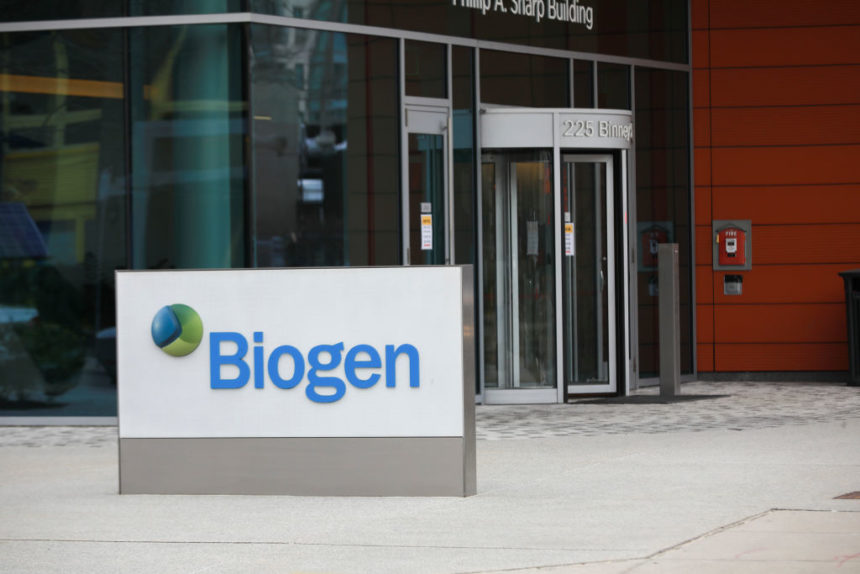In a decision issued Thursday, Medicare finalized its coverage policy for Biogen Alzheimer’s drug Aduhelm. The agency stuck closely to an earlier proposal which restricts payment to those patients who are enrolled in a clinical trial.
Patients on Medicare, the insurance program which covers most of the roughly 2 million individuals whom Biogen says are likely to qualify for Aduhelm, now face the prospect of bearing the cost of the drug themselves when taking it outside of a study. The decision is thus expected to severely curtail sales of the would-be blockbuster.
The reimbursement limits, which are largely in line with a draft ruling issued by the Centers for Medicare and Medicaid Services in January, will also apply to forthcoming drugs in the same class as Aduhelm. That includes an Eli Lilly treatment that’s set to file with the Food and Drug Administration by year’s end.
Despite “the potential for promise with this treatment, there is not currently enough evidence of demonstrating improved health outcomes to say that it is reasonable and necessary for people with Medicare,” said CMS chief medical officer Lee Fleisher in a statement.
“Medical innovation must include clinical trials that demonstrate benefit to patients. Conversely, covering a drug that has not been shown to be effective may incentivize production, marketing and sales of similarly ineffective drugs,” the agency explained in its full decision.
Biogen said the ruling “effectively denies all Medicare beneficiaries access” to Aduhelm, which is aimed at slowing cognitive decline in people with early-stage Alzheimer’s symptoms. As it evaluates the impact, the company said it is “carefully considering its options.”
Aduhelm received conditional approval in June under the FDA’s accelerated-approval pathway, with the caveat that further trials needed to show that the drug indeed slows cognitive decline and is safe. Following the approval, the first new Azheimer’s treatment in 18 years, Azlheimer’s patient groups began a fierce advocacy push.
But the medical community pushed back, given the drug’s unproven clinical benefits and $28,200 price tag. And in the lead-up to the Medicare decision, accelerated approval became the subject of Congressional debate.
The ruling brings to a close a concerted campaign on the part of patient groups to get Medicare to reconsider its coverage limits. As part of the effort, the Alzheimer’s Association and other groups coordinated over 400 meetings in which patients, caregivers and supporters appealed to members of Congress to pressure CMS to widen coverage.
In a statement following the decision, Harry Johns, Azlheimer’s Association CEO, said “CMS has created unnecessary barriers for individuals with Alzheimer’s disease.”
While most of the preliminary ruling remained intact, CMS slightly loosened the trial requirements. Medicare will cover the drug for patients in randomized, controlled clinical trials conducted through either the FDA or the National Institutes of Health.
“While we note CMS has expanded where those clinical trials may take place, in reality this remains an unnecessary and never before imposed barrier to access an FDA-approved treatment,” Johns added.
The policy clearly notes that drugs that are approved via the conditional or accelerated pathway will be subject to these same stringent coverage requirements. However, CMS did say it would consider full coverage of future monoclonal antibody drugs directed against amyloid plaque, should any such agents receive full FDA approval.
“The decision eliminates the accelerated approval pathway as a viable option for the class, but did leave the door open for drugs that secure approval by hard clinical endpoints,” wrote Raymond James analyst Danielle Brill in a note to investors.
In its decision, however, CMS vowed to base coverage restrictions on evidence submitted in trials. Drugmakers developing future Alzheimer’s treatments will need to show positive cognition data not only for approval but also for Medicare coverage.
“Positive Ph. 3 cognition data is already a high bar for success and CMS effectively just raised that bar even higher,” Brill added in her note. “In our view, the future of the whole anti-amyloid Ab class is very much still hanging in the balance.”







